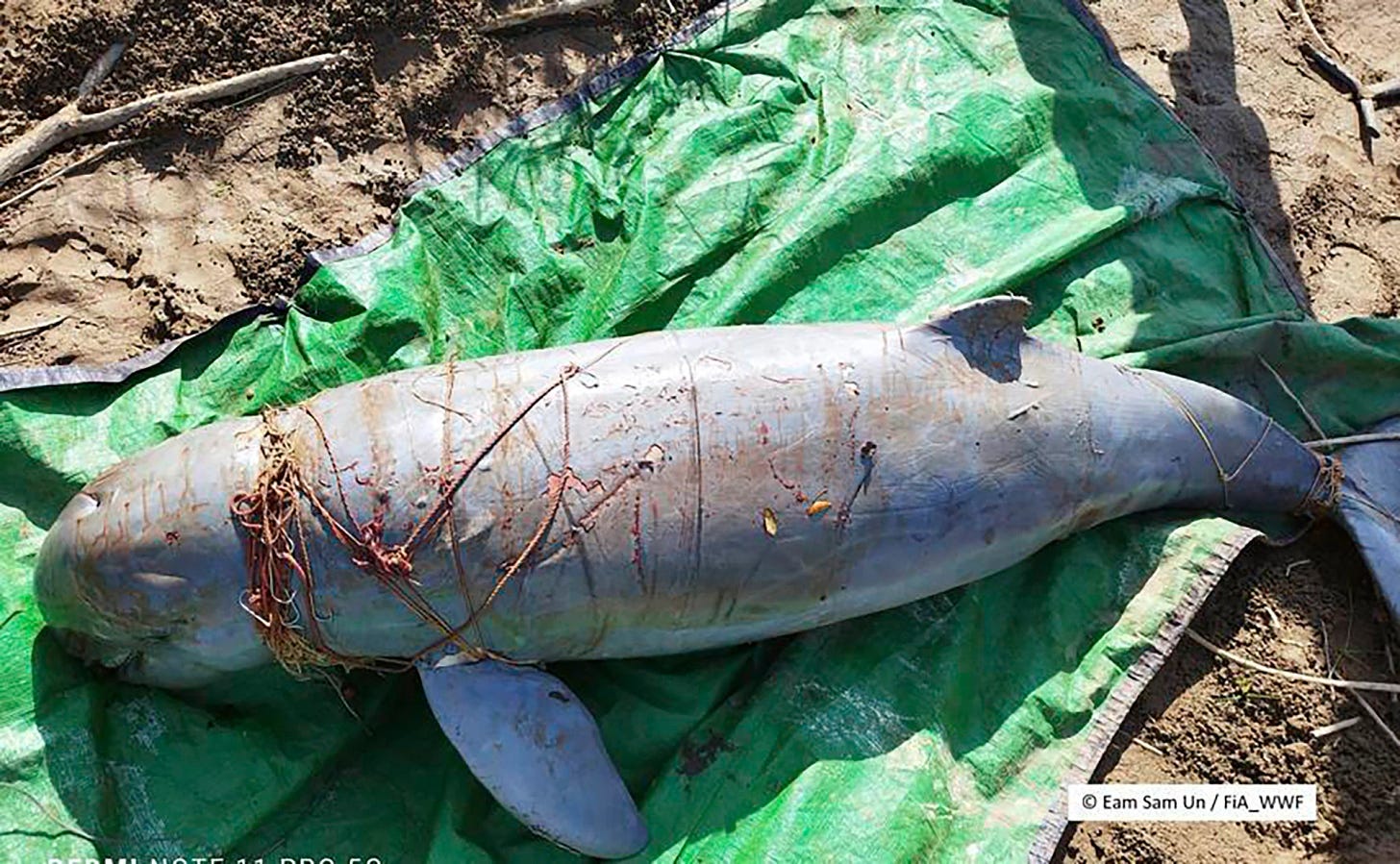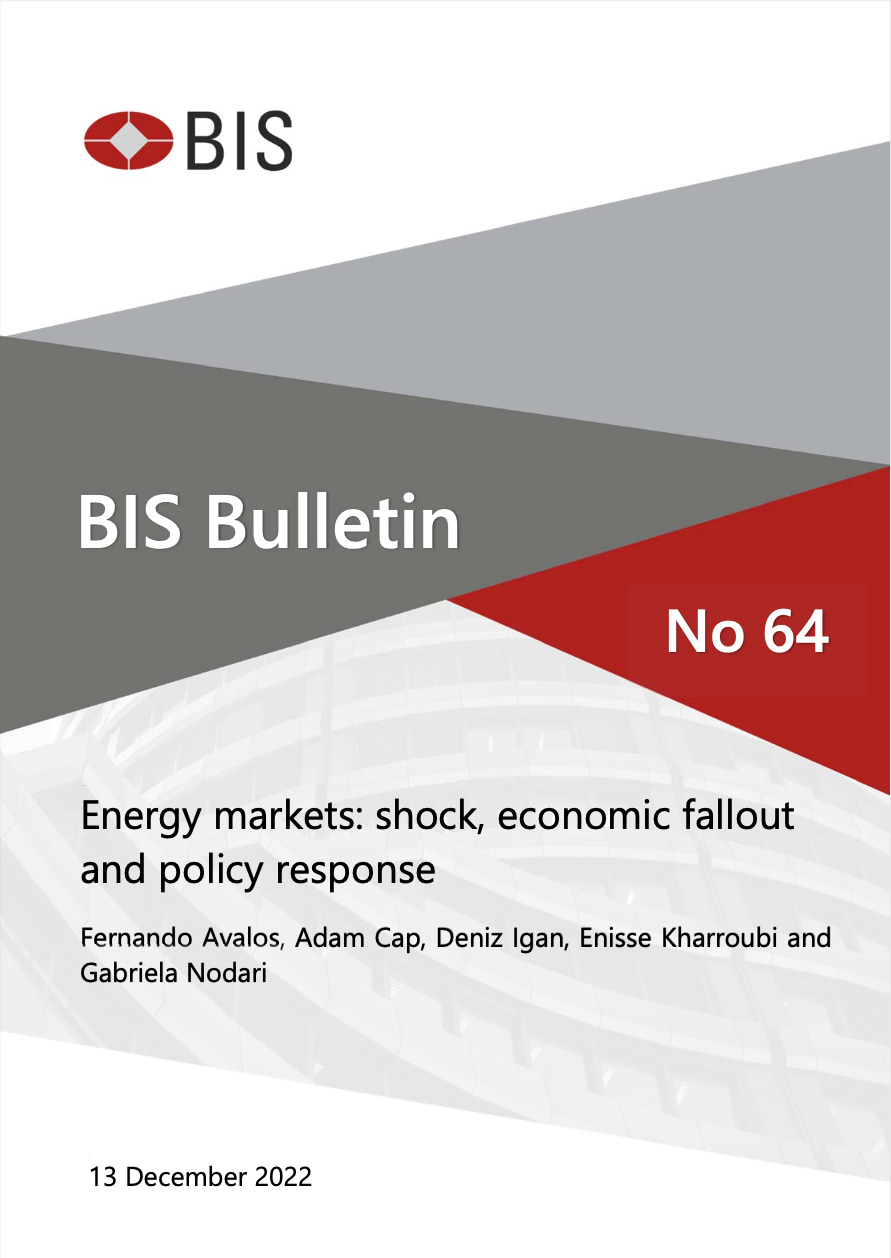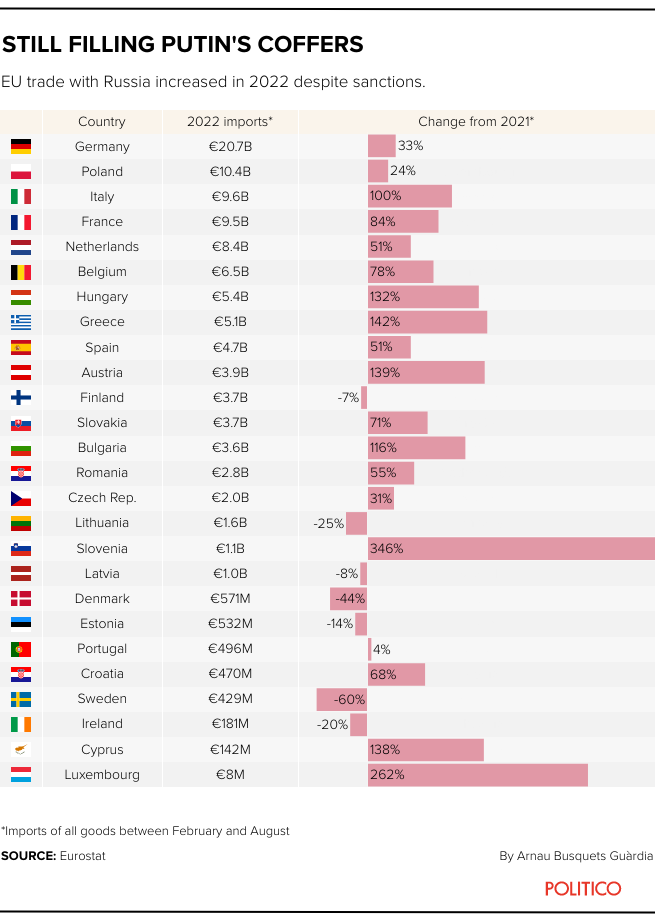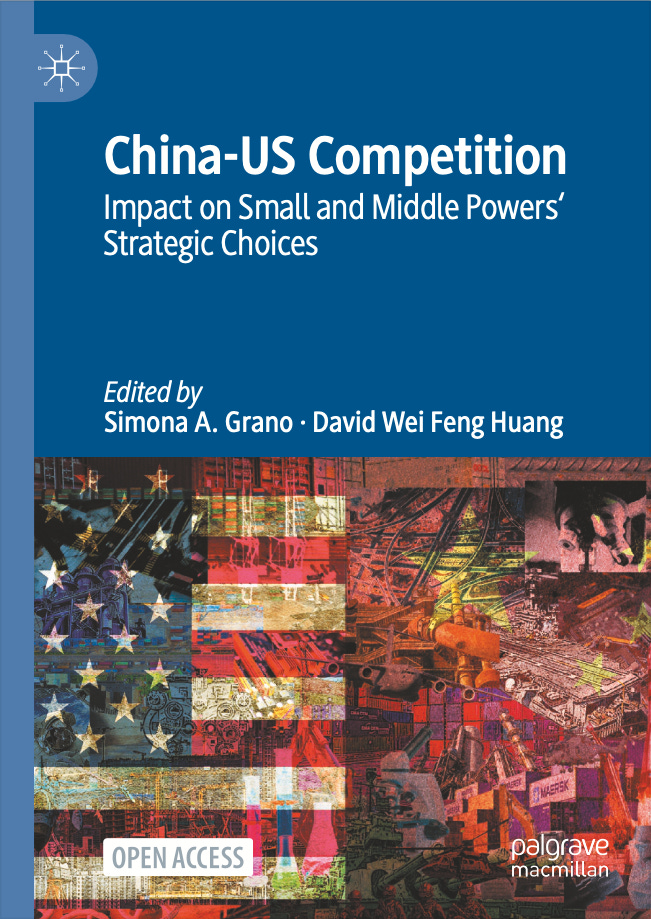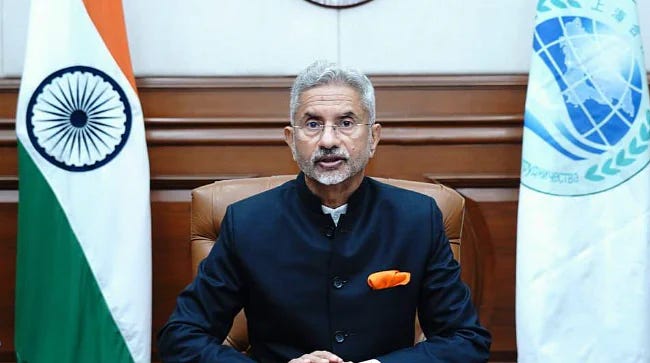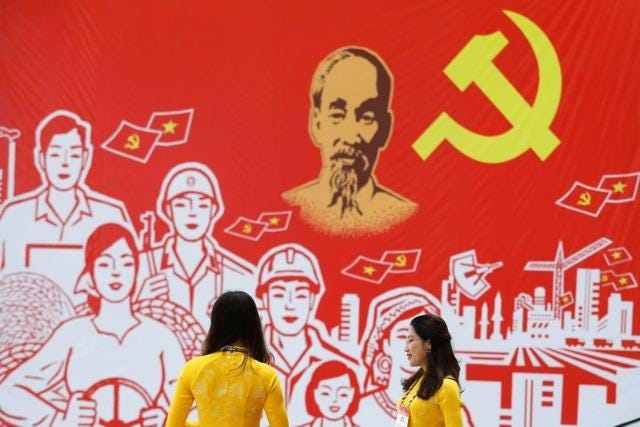Undercurrents
Protecting dolphins, energy shocks, EU-Russia business as usual, Huawei recovers, US-China effect on small states, India UN seat, and Vietnams Bamboo foreign policy
UPDATE: The Long Mekong Daily looks at some counter-narratives to the pervasive Western persuasion. Cambodian PM Hun Sen moves to protect dolphins and not a moment too soon. The Bank of International Settlements reports on energy shocks. The EU has increased trade with Russia during 2022, which points to a negotiated settlement and US impotence. Huawei is back on its feet and spending on R&D is fourth largest on the planet. US strategic competition with China has repercussions for small states in Asia and Europe. India has surpassed the UK economy and now it wants to take a UN security council seat. Vietnam’s bamboo foreign policy is a quandary for the West, but seems normal in Asia.
Cambodian leader Hun Sen orders Mekong safe zones to save rare dolphins
Irrawaddy dolphins currently number around only 90 due to habitat loss and destructive fishing practices ‘Absolute ban’ on all fishing in protection zones so that dolphins will not die from entanglement in gillnets, Hun Sen says.
“The Mekong river, which is home to near-extinct dolphins and fish species, must be well managed so that dolphins will not die from entanglement in gillnets,” he said. Gillnets are nets strung across parts of the river to snare fish.
“The dolphin areas must be protected completely,” he said, adding that the animals’ presence contributed to local tourism.
Three healthy breeding-age dolphins died within a week of each other last month. The deaths alarmed conservationists, who called for both day- and night-patrols in order to protect the remaining dolphins from being killed by illegal fishing.
Eleven dolphins died in 2022, bringing the total number of dead dolphins to 29 in the last three years, according to the WWF.
In a statement, WWF called on all relevant authorities “to enact and roll-out appropriate measures to urgently address the mortality” caused by the threats of gillnets and electro-fishing that take place in the dolphin conservation areas.
Cambodia is home to the largest population of Irrawaddy dolphins, which are also found in rivers and lakes in Myanmar, Indonesia, India and Thailand.
Read full article here.
Energy markets: shock, economic fallout and policy response
Commodity price increases this year have been larger, more persistent and more broad-based than similar past episodes of commodity price rises.
The recent commodity price surge has exerted an overall stagflationary effect on the global economy, lowering growth and raising inflation.
Given already high levels of inflation and of government debt, a coherent monetary and fiscal policy mix is needed even more than usual to navigate the policy challenges.
Commodity market disruptions – in energy and, to a lesser extent, food – have shaped economic developments over the past year and are key to the near-term economic outlook. Commodity price increases have prompted a vigorous fiscal policy response to cushion households and businesses against the shock, but have come against the backdrop of the most vigorous and synchronised monetary policy tightening episode in recent decades. This Bulletin reviews the recent evolution of commodity prices, assesses their impact on output and inflation, and discusses near-term prospects and the implications for macroeconomic policy.
Recent energy and food market developments and prospects
A different shock than in the past
The recent commodity price surge differs from historical precedents in at least three respects.
First, prices have increased more and remained high for longer. Oil prices, for instance, have risen five times above their trough in April 2020 – dwarfing all previous episodes but for the one in 1973 (Graph 1.A).1
Second, the increase has been more broad-based this time around. In previous episodes, non-oil commodity prices either stayed constant or fell back relatively quickly. In the current episode, natural gas and food prices have increased substantially and stayed high (Graphs 1.B and 1.C).
Download the full report here.
EU businesses stuck with Russia: Even more damning, EU investment in Russia remained much higher than public announcements may have suggested.
While companies pulled some of their big brands out of Russia, overall, euro area holdings of Russian assets declined by a mere 10 percent between the end of the fourth quarter of 2021 and the end of the second quarter of 2022, according to a European Central Bank report. The drop in EU holdings of Russian assets was not so much due to companies leaving the country, as “mainly due to a reduction in the value of euro area holdings of Russian portfolio investment securities,” the ECB said. Overall, “FDI positions remained broadly unchanged” after Russia’s war.
Read more on this story here.
Huawei confident of turnaround this year
Huawei Technologies Co will endeavor to turn 2023 into a period of fresh growth opportunities warranting a business-as-usual approach in spite of the US government restrictions, its executives and industry observers said.
The Chinese tech major, they believe, has succeeded in pulling itself out of a "crisis" by ensuring its revenue remained flat when it could have easily declined in 2022 due to a variety of odds.
That in itself is a sort of achievement, which seems to suggest the impact of Washington's restrictions on Huawei's sales has started to wane amid the Chinese company's progress in finding new growth streams, experts said.
This year, the global tech industry is expected to face challenges like weak demand, which might weigh on many companies' performance, they said.
Xu Zhijun, rotating chairman of Huawei, said in a letter to the employees that preliminary data showed that the company's revenue in 2022 was 636.9 billion yuan ($91.53 billion). The number is fractionally higher than the corresponding 2021 figure, yet marks a big turnaround from the nearly 30 percent year-on-year sales tumble in 2021 due to the US sanctions.
Xu said, "In 2022, we successfully pulled ourselves out of the crisis mode. US restrictions are now our new normal, and we're back to business as usual."
Read full article here.
China-US Competition: Impact on Small and Middle Powers‘ Strategic Choices
This edited volume aims to tackle the China-US strategic competition— and its international repercussions—from the perspective of the various strategies adopted by specific countries in Asia and Europe, when dealing with the two hegemons.
The book includes a balanced selection of chapters regarding both European and Asian countries’ tactics to cope with the China-US strategic rivalry. The chapters do not simply look at the “unitary” foreign policy positioning of national governments but attempt to depict how a variety of actors within these countries view the strategic competition, well representing how fragmented and polarised societies within countries are, when it comes to the issue of how to deal with China and with the United States.
Download the volume here.
EAM Jaishankar Made Some Solid Points About Why India Deserves A Permanent UNSC Seat
As the most populous Global South country that recently became the developing world’s voice at the latest G20 Summit and aspires to lead its peers across the next year of its chairmanship, there is thus no alternative to India receiving a permanent UNSC seat upon that global body’s reform.
Indian External Affairs Minister (EAM) Dr. Subrahmanyam Jaishankar explained why his globally significant Great Power deserves a permanent UNSC seat while speaking to members of the diaspora in Vienna on Sunday. In his words:
“The UN system was invented in 1945. Now, I tell people to show me something which is 77 years old and you feel doesn't need a refresh.
People refresh themselves, institutions need to be refreshed by other people. We need change. Large parts of the world do not believe anymore that the UN system speaks fairly for them.
The problem is those who are occupying positions of influence obviously don't want to dilute their influence.
So how we persuade people to go along with that change when their more short-term calculations make them stick to the old system is a real problem.
Having said that, it's something which we will persevere and it's a very important goal for us, and our foreign policy. It won't happen tomorrow but it will happen one day, trust me.”
His insight follows that which he earlier shared with the New York Times’ Paris bureau chief Roger Cohen, which the latter quoted in his article that acknowledged India’s global rise but still tried to throw shade upon it. That journalist reported Jaishankar’s words during their interview as follows:
“A ‘world order which is still very, very deeply Western,’ as he put it in an interview, is being hurried out of existence by the impact of the war in Ukraine, to be replaced by a world of ‘multi-alignment’ where countries will choose their own ‘particular policies and preferences and interests.’
‘I would still like to see a more rules-based world,’ Mr. Jaishankar said. ‘But when people start pressing you in the name of a rules-based order to give up, to compromise on what are very deep interests, at that stage I’m afraid it’s important to contest that and, if necessary, to call it out.’
For Mr. Jaishankar, time is up on the mind-set that ‘Europe’s problems are the world’s problems, but the world’s problems are not Europe’s,’ as he put it in June.
‘I would argue that generally in the history of India, India has had a much more peaceful, productive relationship with the world than, for example, Europe has had,’ Mr. Jaishankar said.
‘Europe has been very expansionist, which is why we had the period of imperialism and colonialism. But in India, despite being subjected to colonialism for two centuries, there’s no animus against the world, no anger. It is a very open society.’”
A summary of Jaishankar’s worldview can be extrapolated from these two recent excerpts. Simply put, be believes that the global systemic transition to multiplexity is irreversible and recently passed an inflection point as a result of last year’s chaotic events.
Read full article here.
Foreign minister praises Vietnam's 'bamboo diplomacy'
Unfamiliar security risks such as climate change, natural disasters and epidemics are part of everyday life now, and the long-term impacts of the Covid outbreak are hampering global recoveries everywhere, he said.
However, Vietnam continues to retain its stability and growth thanks to "resolute independence, autonomy, multilateralization, diversification and support for the essential principles of the United Nations Charter and international law, for the national interests and its people."
Vietnam is firm in its beliefs, flexible in its strategies, and committed to loyalty, justice, peace, cooperation, and the betterment of humanity, according to the minister.
Son said in a statement published Sunday by the Ministry of Foreign Affairs that Vietnam's foreign policy is "flexible and creative but consistent, valiant and resilient" and is based on the idea of "immutable, improvised, equitable, and mutually beneficial cooperation."
He said the most notable achievement of Vietnam's foreign affairs activities last year was to firmly consolidate favorable foreign affairs policies amid moveable global situations in order to maintain a peaceful and stable environment, protect independence, sovereignty, and territorial integrity, serve socio-economic development, and improve the country's international position and prestige.
Vietnam also continues to promote its active and responsible participation in and contributions to important multilateral organisations like the United Nations, ASEAN, APEC, and cooperation projects across the Mekong region.
Read full article here.




